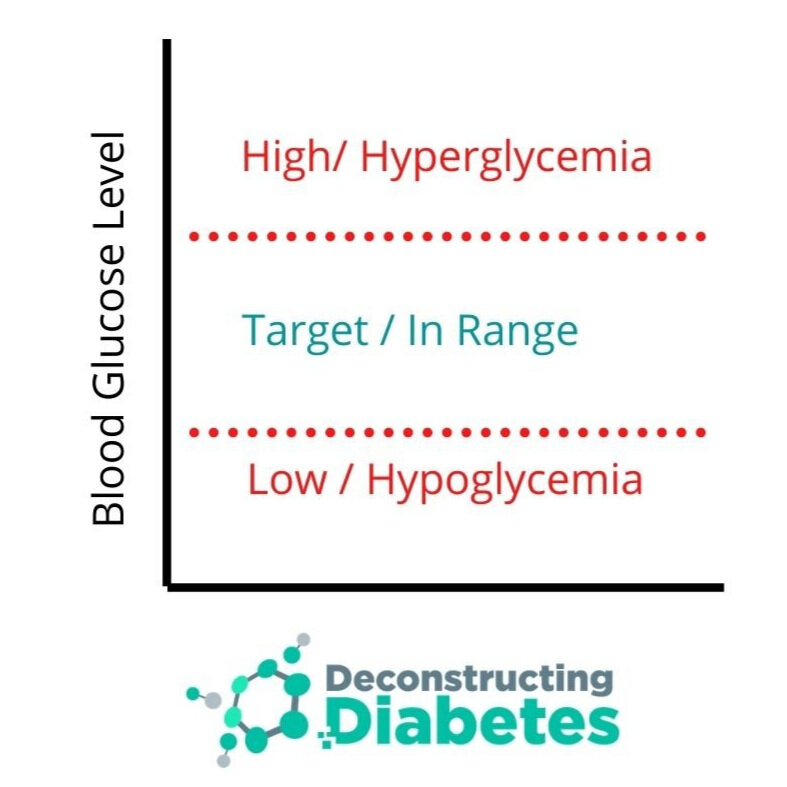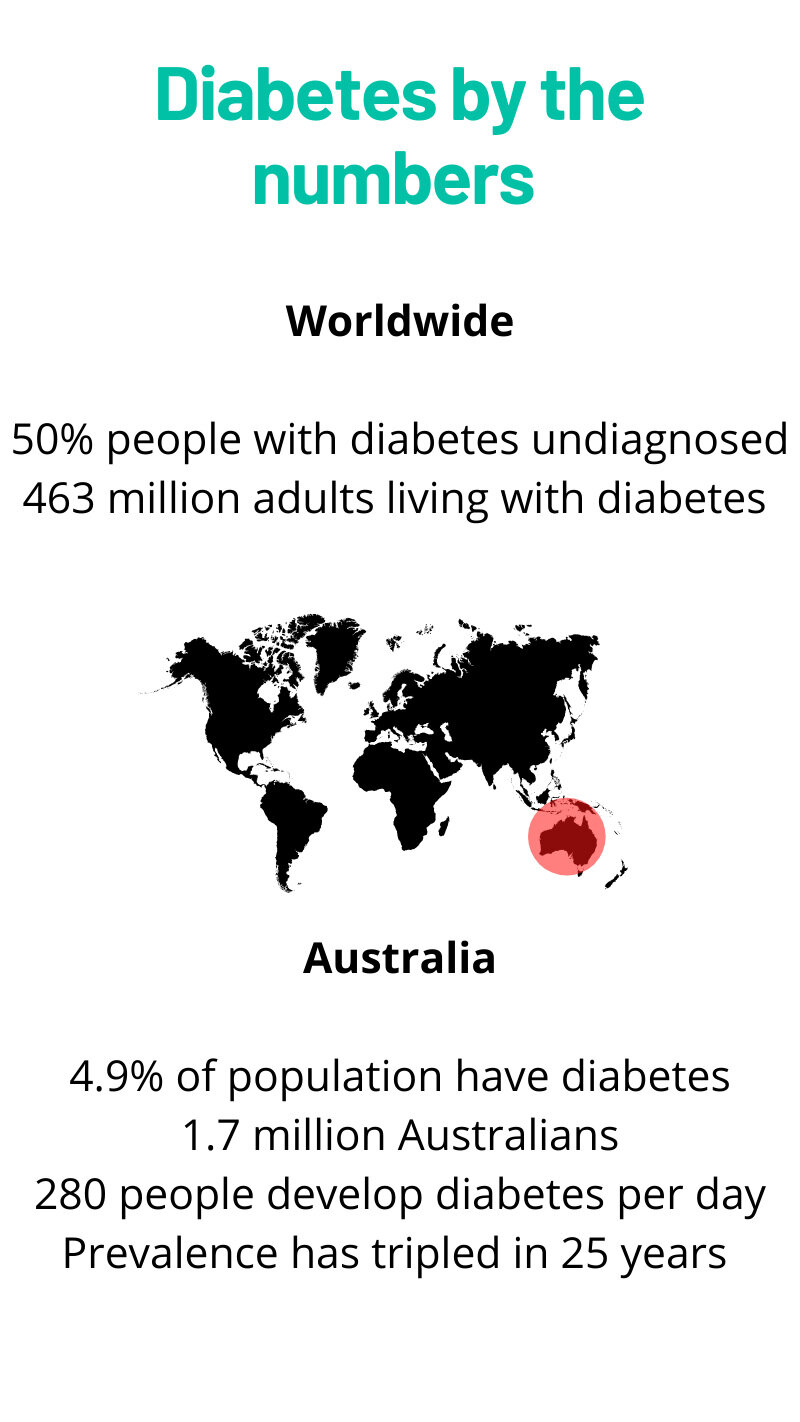What is Diabetes? How Do I Manage My Diabetes?
WHAT IS DIABETES?
Glucose is in our blood, and is normally kept in a tight range. We need glucose to fuel many processes, including our muscles to move and our brains to think. At normal levels, glucose is needed to function and is not a problem.
Diabetes is a problem of having glucose levels that are too high.
When blood glucose levels are too high they become toxic. High blood glucose levels over time can cause problems with blood vessels, nerves, and organs. These are referred to as complications.
Keeping Blood Sugars within range. The aim is to avoid high and low blood sugar levels
Where does the glucose in our body come from?
Some of this glucose in the blood comes from the food we eat. Our body also makes it's own glucose.
How does our body keep blood glucose within this normal range?
Our body has a mechanism to regulate glucose levels. The body senses high blood glucose levels and brings these levels down. The pancreas produces a hormone called insulin, which pushes glucose from the blood into the muscle, liver and fat - which reduces the glucose level in the blood.
So what causes blood glucose levels to go too high?
In the different types of diabetes, there is a malfunction of the inter-relationship between this insulin secretion and / or insulin action. In addition, the food we eat, our bodyweight and the activity affect these glucose levels.
Numbers of People in the World and in Australia with Diabetes
Numbers of people in the World and in Australia with Diabetes
Type 2 Diabetes
The most common form of diabetes. As well as age and family history, lifestyle factors contribute to risk of developing Type 2 Diabetes. Read more about Type 2 Diabetes.
Type 1 Diabetes
About 10% of diabetes cases are due to Type 1 Diabetes. In this type of diabetes, the body stops making insulin, and insulin needs to be administered. Read more about Type 1 Diabetes.
Diabetes Management - Keeping Blood Glucose Levels within range
The aim is to avoid high and low glucose readings. This is known as Time in Range (TIR), and is becoming a focus of diabetes management as well as the longer term measure of HbA1c.
To do this, we need to address bodyweight, exercise, diet, lifestyle and for some people, medication may be needed.
Depending on the type of diabetes you have, the medical management and the dietary advice given to you will vary.


